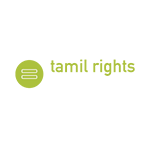Tamil Rights Group (TRG) in its strategy to advocate and garner international support for transitional justice in Sri Lanka, aims to engage with governments and the international community who share the concern of the lack of accountability mechanisms and Transitional Justice processes in Sri Lanka, and the rising trends of impunity, authoritarianism, Sinhala-Buddhist extremism, and militarisation in Sri Lanka. TRG observes this as a vital area of engagement which has been under utilised in international advocacy efforts thus far.
The historical relationship between India and Sri Lanka, and the immediate responsibility of India to the Eelam Tamil national question warrants irrevocable attention due to its commitment on Indo-Lanka Accord signed on behalf of Eelam Tamils. Due to Sri Lanka’s strategic location and geographical proximity, India and Sri Lanka have had close cultural, economic, religious, and social affinities historically. India was a crucial ally in Sri Lanka’s anti-colonial movement and is a state that espouses values of non-alignment, pluralism and devolution of power which are crucial for state building of Sri Lanka. The Indo-Lanka Accord signed in 1987 reflects the multi-ethnic, multi-religious makeup of the people of Sri Lanka and champions a system of governance that recognizes the aspirations of Eelam Tamils. The Indo-Lanka Accord provided the basis for the Thirteenth Amendment, and India continues to push for constitutional reforms and devolution of power. The sustainable political solution also warrants human security against structural genocide.
TRG thus seeks to advocate globally with governments who recognize the need for transitional justice in Sri Lanka, and systemic change which will enable full participation of all citizens that can establish sustainable reconciliation and guarantees of non-recurrence of violence in the country.
